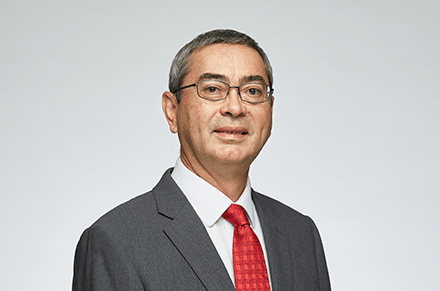Sime Darby Bhd reported a net profit of RM345 million for the second quarter ended 31 December 2021 (Q2 FY2022), compared with RM633 million in the previous financial year’s corresponding quarter, which benefitted from the one-off gain of RM272 million on the divestment of the Group’s stake in Tesco Malaysia.
In a statement, it said that the revenue for the quarter was down by 6.3 per cent at RM10.5 billion. Core net profit for Q2 FY2022 was 4.4 per cent lower at RM345 million, compared with RM361 million in the corresponding quarter last year, due largely to lower profits from the Industrial division’s China and Australasia operations.
For the six-month period ended 31 December 2021 (1H FY2022), net profit was down to RM581 million from a year ago in the absence of the gain from the Tesco Malaysia deal. Core net profit for the six-month period was down 8.2 per cent to RM581 million due to lower contribution from the Industrial division which was affected by overall industry volume contraction in China and weaker operating margin in Australasia. Revenue was down 4.1 per cent to RM21.2 billion for the period.
“We obviously benefitted from the one-off RM272 million gain from the sale of the Group’s stake in Tesco Malaysia last year. On a purely core profit level, for Q2 FY2022, we were able to deliver resilient results despite tough market conditions, and this is testament to our strong foundation and the effective strategy which we have put in place,” Sime Darby Berhad Group Chief Executive Officer Dato’ Jeffri Salim Davidson said.
“The Chinese economy, driven by consumer-led spending, remains very strong. However, a slowdown in infrastructure spending led to a decline in demand for heavy equipment, which together with intense competition from local Chinese original equipment manufacturers, impacted our Industrial China business
Despite partial lockdowns in some of our markets, demand for motor vehicles remained strong. There has been some impact from supply constraints, and this has affected sales volumes, especially in China. On the flip side, our Malaysian operations were boosted by higher margins from car sales whilst our commercial vehicle deliveries in New Zealand increased significantly during the second quarter.
China is the largest car market in the world and our most important market for the Motors division. We continue to believe in its growth potential for the long term. Therefore, we will continue to expand there in terms of luxury and electric vehicles distribution. We remain committed to our long-term growth strategy, which focuses on organic and inorganic expansion for the Motors and Industrial divisions in the Asia Pacific. We believe our geographical spread across 19 countries in the world’s fastest-growing economic region and our strong balance sheet places us in a good position to weather the short-term headwinds ahead and to capture any potential opportunities,” Dato’ Jeffri said.









